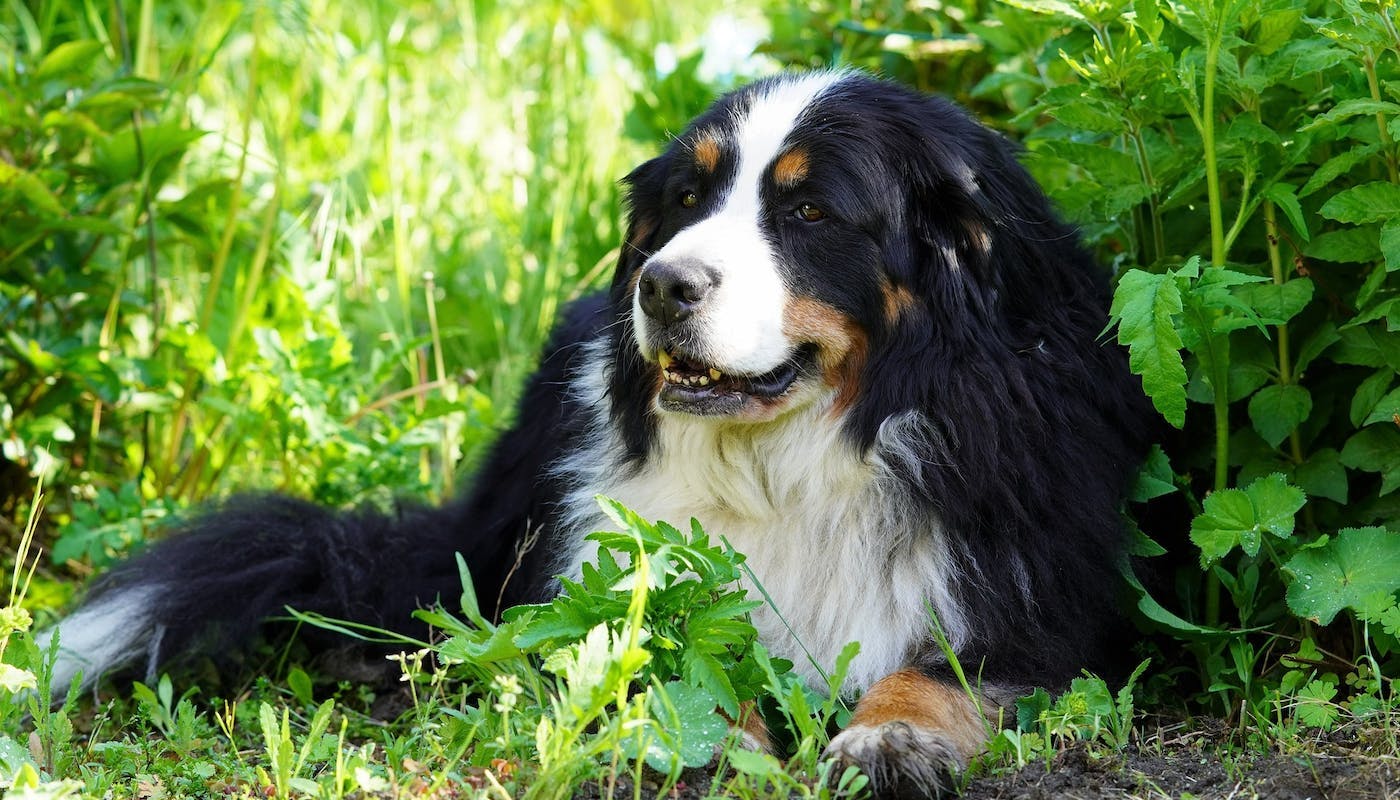Average Weight Of A Bernese Mountain Dog
One of the largest dog breeds, the huge, friendly Bernese Mountain Dog was bred as a working dog on Swiss farms. But how big do they grow, what is the average weight of a Bernese Mountain Dog, and does their size impact their health?
In this article, we’ll explore all these questions and more about the weight, height, size, and health of an average Bernese Mountain Dog.
How Big Is The Average Bernese Mountain Dog?
Strong, sturdy, and longer than they are tall, the Bernese Mountain Dog is considered a ‘large’ breed that can grow to over 2 ft tall. From floor to shoulder, a fully grown Bernese Mountain Dog can stand at 23-27 inches high. An adult male will weigh 80 to 115 lbs, and an adult female will weigh 70 to 95 lbs.
How Fast Do Bernese Mountain Dogs Grow?
On average, it takes one year for a Bernese Mountain Dog to fully mature and grow to their full size and weight. However, they may still look like young pups during this time as it can take up to two years for their chest to fully fill out.
If you have a Bernese Mountain Dog puppy and aren’t sure how big they might grow, or what weight and size they should be at certain stages, there are a few tips you can follow to make a rough estimate. Although each dog is different and will grow at their own pace, these guidelines can be useful to make sure they’re on track. And if you think your dog is greatly ahead or behind these markers, consult your vet.
- A one month old Bernese Mountain Dog should weigh 4-10 lbs
- A three month old Bernese Mountain Dog should weigh 20-35 lbs
- A six month old Bernese Mountain Dog should weigh 45-70 lbs
- A nine month old Bernese Mountain Dog should weigh 60-90 lbs
- A one year old Bernese Mountain Dog should weigh 65-105 lbs
Another indicator of puppyhood is the size of your dog’s paws. If they look large and outsized compared to their legs and body then they’re still growing and haven’t yet reached their full adult shape. You could also contact your breeder, if you have one, and gain an understanding of your dog’s parents’ sizes and weights to help estimate how large your pup will grow.
Caring For A Bernese Mountain Dog
Though docile and friendly, a Bernie needs thorough obedience training from as young an age as possible to keep them under control. These gentle giants respond best to gentle, positive reinforcement training with plenty of praise. They aren’t always the fastest learners, but be patient: an untrained dog of this size can play havoc in the house if they aren’t taught good behavior.
The Bernese Mountain Dog is the only one of the four Swiss mountain dog breeds to have a long, sleek coat. Beautiful as it is, it is thick and prone to matting so should be brushed daily to keep it in healthy, shining condition – and to prevent shedding all over your furniture!
Originally bred as a working dog that helped out on farms in the mountains near Bern, Switzerland, these strong and powerful dogs like to be kept active. Though they only need moderate levels of exercise considering their size, they love to walk and explore with their owners and need plenty of mental stimulation at home, too.
But, when trained and fully socialized, the Bernese Mountain Dog makes a wonderful and affectionate pet that’s happy to play companion to their devoted owner, whatever they’re doing.
Bernese Mountain Dog Health Conditions
Larger dogs have shorter life expectancies, and can be prone to health conditions that are less likely to affect smaller, lighter breeds. The average Bernese Mountain Dog lifespan is just 7-9 years. But those years can be made more fun and thriving for both dog and owner if you’re aware of the potential illnesses they are susceptible to, and their symptoms.
Hip and elbow dysplasia
A condition more common in large dogs where the joints and sockets grow abnormally and don’t fit into place as they should. This is a hereditary condition that can be very painful and may need surgery as treatment. If you notice your dog limping, struggling to move, or experiencing pain in their joints, it could be due to dysplasia/learn/dog-health/what-is-hip-and-elbow-dysplasia-in-dogs.
Progressive retinal atrophy
A form of blindness, this often occurs between the ages of one and five and can leave Bernese Mountain Dogs fully blind from the age of three. This usually begins as night blindness. So if you think your dog is having trouble with their vision/learn/dog-health/ears-eyes-mouth-and-nose-is-my-dog-healthy, consult your vet.
Bloat
A fast-onset and potentially deadly stomach condition, bloat is most common in large dogs. Though there’s no definitive reason for bloat, many believe that eating too quickly and leaving too large a gap between meals can cause disruption in the stomach which causes it to swell and move, leading to bloat. If you notice your dog experiencing any of the symptoms of bloat/learn/dog-health/what-is-bloat-in-dogs, take them to the vet immediately.
Blood disorder
One of the most common blood conditions that can affect Bernese Mountain Dogs is the bleeding disorder Von Willebrand's Disease. This is an inherited illness that means the dog has less than half of the normal level of the protein that is needed for blood clotting – known as the Von Willebrand Coagulation Factor. If your dog suffers nose bleeds, bleeding from the mouth when teeth are lost, bleeds more excessively than normal when injured, or bruises very easily they might have VWD.
Cancer
Lymphoma and Histiocytosis are two forms of cancer that Bernese Mountain Dogs are more prone to than other breeds. These types of cancer are caused by an abnormal type of white blood cell attacking the body, and Histiocytosis is hereditary and should be eliminated by trusted breeders.
